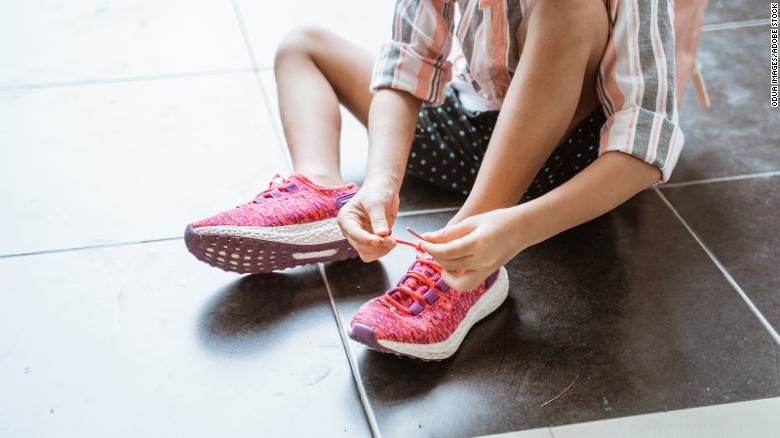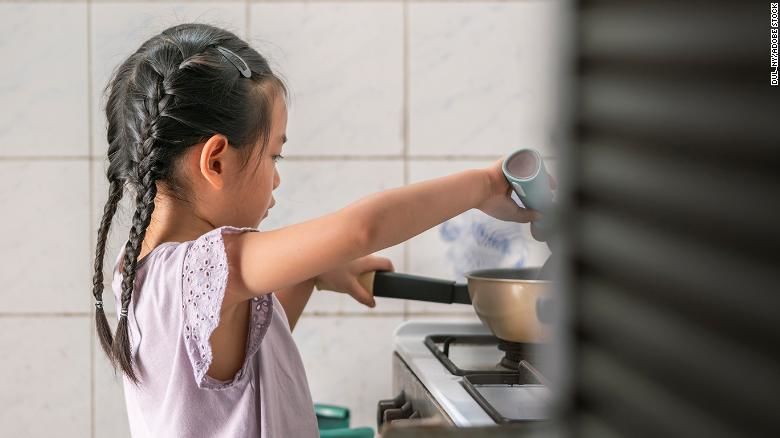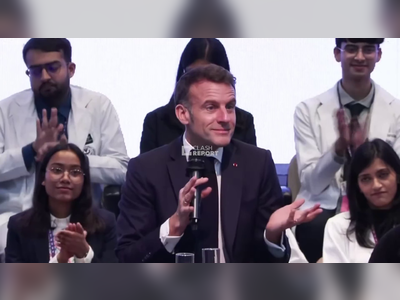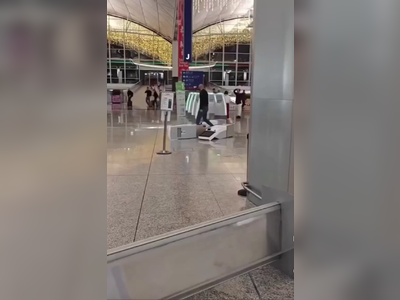
How to help your kids be more independent and self-sufficient
Lockdowns, remote learning and quarantines placed onerous limits on children's physical freedoms, curtailing their opportunities to do all sorts of things on their own outside home. There were school and camp closures as well as cancellations of playdates, sports games and birthday parties -- the list went on and on. Achieving independence is far more challenging when kids never get away from parents and caregivers.
Furthermore, many of those exhausted and terrified parents and caregivers -- who knew they should be encouraging children to tie their own shoes, make their own lunches, do their own laundry or walk to the store to buy milk -- struggled to find the time and space to invest in teaching such tasks. We thought about how to survive in the now, not what's best in the long run.
Now, as a relatively back-to-normal school year begins, families may have more opportunities, and the emotional bandwidth, to help children become more self-sufficient.
A key piece of maturity is learning how to "make independent decisions and to navigate challenging situations on one's own when necessary," said Karen VanAusdal, senior director of practice at the Chicago-based Collaborative for Academic, Social and Emotional Learning. Teaching a kindergartner to put their laundry away or get their own plate at a buffet may feel far from the kind of independence they will need to master in adolescence and adulthood, but there is a connection. They are learning to trust their instincts and deal, literally and figuratively, with their own stuff.
They is also seeing how self-sufficiency helps them be part of a community, familial or otherwise. When a child puts away their laundry, their parents have one less thing to do. By getting food at a buffet, they learn a new skill so that a parent might be able to send them back for a plate of fruit salad or cup of coffee. In other words, they are taking care of himself and others. "Independence also allows one to contribute their skills and leadership to solving problems, both individual and collective," VanAusdal said.
Here are ways to approach encouraging independence that aim to meet the individuals needs of each child:
Frame new skills as building relationships with others
Learning how to pack a backpack or pour cereal may count as children becoming more independent, but parents should help them see how these seemingly small acts connect them to others, said Maurice J. Elias, professor of psychology at Rutgers University and coauthor of "Emotionally Intelligent Parenting: How to Raise a Self-Disciplined, Responsible, Socially Skilled Child."
"We human beings were not meant to be independent. It's true biologically, and it's true socially," he said. "We long for and require attachment to other people and to institutions -- home, school, work, community, religion -- that give our lives meaning and purpose."
Frame a new skill so that children see they're taking on a larger role in their families and communities. For example, who bought the food they are using to make lunch? How does making their own bed, or cleaning their room, make mornings easier for parents and caregivers? If your children go to the supermarket alone, don't forget to prepare them to engage and interact with others, Elias said. Did they hold the door open for the person behind them? Did they say please and thank you?
Learning such skills is about common courtesy, Elias said, but also prepares children for a more interdependent future.
Pace yourself
Don't rush to make up for lost time, experts say. Move slowly and respect a child's emotional state and practical competency. "Kids have lost their sense of confidence," Elias said. "Try to let them start with something they will succeed at, rather than throw them right into a difficult challenge."
 Encouraging children to tie their own shoes offers them the opportunity to take ownership of a helpful life skill.
Encouraging children to tie their own shoes offers them the opportunity to take ownership of a helpful life skill.
With young children, VanAusdal suggests beginning with something as basic as asking them to make simple choices. "Say to a toddler, 'Here are two shoes you can wear today. Which one do you want to wear?'" Making small decisions will help them feel more confident taking on more responsibility.
Pairing these responsibilities with a new privilege can help children feel good about changes, she added. Maybe they don't just cook dinner, for example, but also get to decide what the family eats.
Step back
Adults should give children room to explore their independence, VanAusdal said.
The key is for parents to provide space for the necessary trial and error. "Think, 'Here are two or three places where I can allow my kids to take on more responsibility,'" she said. "Yes, there will be some mistakes, but eventually it will go more quickly." This can be a growing experience for everyone involved.
Adults can also follow their child's lead, said Anya Kamenetz, an education reporter and author of the upcoming book "The Stolen Year: How COVID Changed Children's Lives, and Where We Go Now."
Find ways for kids to take on more responsibility in an area they are already interested in, or that helps them achieve their goals. "My 10-year-old loves the idea of earning extra spending money, so she set up a lemonade stand the other day," she said, while her 5-year-old is "really excited about all the playdates she missed out on, and that's her incentive to start keeping her room clean."
Get organized
Never underestimate the power of the family calendar, chart or chore wheel, Kamenetz said. She suggests relying on children's schedules to create a calendar for new responsibilities. "A new school year is starting," she said, "so it's a good time for a reset."
 Find ways for kids to take on more responsibility by letting them explore areas they're interested in.
Find ways for kids to take on more responsibility by letting them explore areas they're interested in.
"Call a family meeting and say, 'Here's what we need to get done around the house? What's your piece?'" she said. These conversions help children see all the tasks that help keep the house running.
Chores are more than arbitrary tasks; they're acts of interdependence. When my sons put their laundry away or bake something with minimal assistance, they're not just proud of mastering a new task. They also feel good because they found a new way to help contribute to the family's collective well-being.
Elissa Strauss covers the culture and politics of parenthood. Her book on the radical power of parenting and caregiving will be published in 2023.











